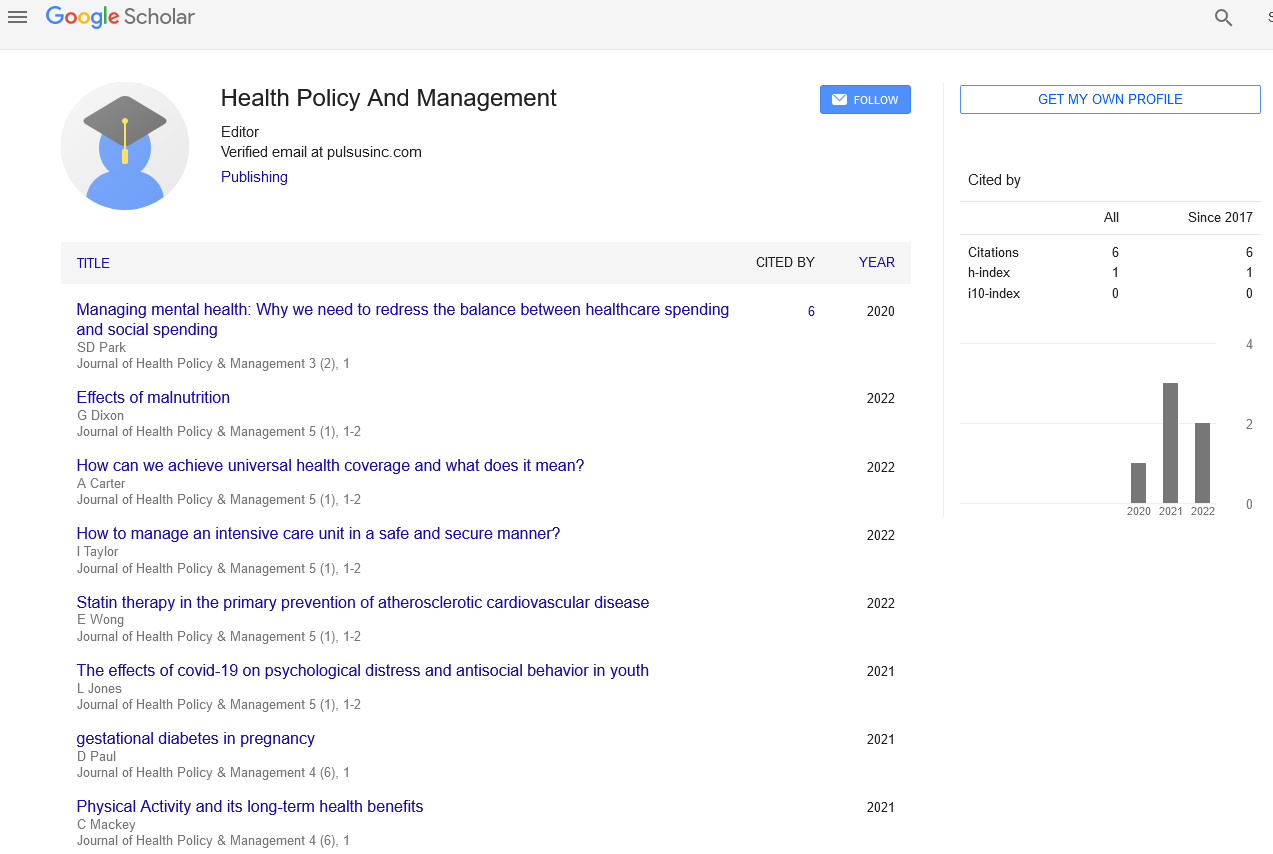Iron deficiency anemia in women health
Received: 01-Oct-2021 Accepted Date: Oct 15, 2021; Published: 22-Oct-2021
Citation: Zhang P. Iron deficiency anemia in women health. J Health Pol Manage. 2021;4(5):5.
This open-access article is distributed under the terms of the Creative Commons Attribution Non-Commercial License (CC BY-NC) (http://creativecommons.org/licenses/by-nc/4.0/), which permits reuse, distribution and reproduction of the article, provided that the original work is properly cited and the reuse is restricted to noncommercial purposes. For commercial reuse, contact reprints@pulsus.com
Description
Iron deficiency and anemia during pregnancy are related to unfavorable maternal and fetal effects, which includes neurocognitive deficits in children born to iron-deficient mothers. Both iron deficiency and anemia are common in women undergoing surgical procedure however their association with negative effects stays uncertain.
Iron-deficiency anemia is the most common form of anemia, a condition that occurs while your body does not make sufficient healthy red blood cells or the blood cells don’t work correctly. Iron-deficiency anemia occurs when you don’t have sufficient iron for your body. Your body is in need of iron to make hemoglobin, the part of the red blood cell that carries oxygen via your blood to all components of your body. This impacts more women than men. The danger of iron-deficiency anemia is maximum for women who are pregnant- Iron-deficiency anemia impacts one in six pregnant women. You want excess amount of iron all through the pregnancy to support your unborn baby’s development and Have heavy menstrual periods: Up to 5% of women of childbearing age develop iron-deficiency anemia due to heavy bleeding throughout their periods.
Iron-deficiency anaemia often develops slowly. In the beginning, you may not encounter any symptoms, or they may be mild if present. As it gets worse, you may notice one or more of the following symptoms: Fatigue (very common), Weakness (very common), Dizziness, Headaches, Low body temperature, Pale or yellow "sallow" skin, Rapid or abnormal heartbeat, Shortness of breath or chest pain, particularly with physical activity, Brittle nails, Pica (uncommon cravings for ice, very cold drinks, or non-food items like dust or paper).
Women will have low iron levels for numerous reasons: Iron lost through bleeding: Bleeding can cause you to lose more blood cells and iron than your body can replace. Women can also additionally have low iron levels from bleeding resulting from: Increased need for iron throughout pregnancy: During the stage of pregnancy, your body needs extra iron than normal to support your growing baby. Not consuming sufficient food that carries iron: Your body absorbs the iron in animal-based foods, which includes meat, chicken, and fish, to a few instances higher than the iron in plant-based foods. Vegetarians or vegans, who consume very little animalbased foods, want to choose different good sources of iron to ensure they get sufficient. Your body additionally absorbs iron from plant-based foods higher while you consume them with foods which have vitamin C, including oranges and tomatoes. Problems absorbing iron: Certain health conditions, which includes Crohn's ailment or celiac ailment, or gastric pass surgical procedure for weight reduction could make it tougher to your body to absorb iron from food.
Iron deficiency and anemia are worldwide health troubles and foremost reasons of morbidity in women. Menstrual loss, unusual uterine bleeding and pregnancy put women prone to developing iron deficiency that may bring about intense fatigue, decreased exercising potential and negative work performance. Iron deficiency anemia may be treated relying upon the cause: Blood loss from a digestive system problem. If you’ve an ulcer, your physician may come up with antibiotics or different medicinal drug to deal with the ulcer. If your bleeding is resulting from a polyp or cancerous tumor, you may be suggested to surgical procedure to remove it. Blood loss from heavy menstrual periods. Your physician can also additionally come up with hormonal birth control to help relieve heavy periods. Increased need for iron. If you've troubles absorbing iron or have decrease iron levels however do not have intense anemia, your physician may recommend: Iron tablets to build up your iron levels as fast as possible. Do not take any iron tablets without first speaking for your physician or nurse. Taking a balanced weightreduction plan rich in iron and vitamin-c can help prevent iron deficiency anemia. Good sources of iron encompass meat, fish, eggs, beans, peas, and fortified ingredients (look for cereals fortified with 100% of the everyday value for iron). Vitamin C enables your body absorb iron. Good source of vitamin C encompass oranges, broccoli, and tomatoes.





